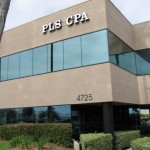“The Important Role You Play”
by
Chairman Mary L. Schapiro
U.S. Securities and Exchange Commission
AICPA Annual Conference
Washington, D.C.
December 6, 2010
Good morning and thank you, Chris, [Holmes, Chairman of AICPA SEC Relations Committee] for that kind introduction.
It’s a pleasure to be here today because your work is so critical to the effective functioning of our capital markets. It is through your efforts that investors receive the timely, reliable and comparable information needed to make informed investment decisions. And it is through the decisions of fully-informed investors that our markets are able to efficiently allocate the capital that fuels innovation and growth.
Working to Restore Confidence
Unfortunately, the scandals and crises of the last decade understandably have shaken the public’s trust in America’s capital markets.
For some time now, the SEC — and other regulators — have been working to restore that trust. But this goal is not one that can be achieved by regulators alone — the accounting profession has an important role, as well.
Custody Controls
In fact, one of the first rules we adopted after I became Chairman was one that recognized the importance of your profession to the functioning of our financial markets — a rule where we sought to leverage the knowledge, judgment and expertise of certified public accountants.
It was early 2009, and we wanted to find a way to provide greater assurance to investors that their accounts actually held the money that their investment advisers said they held.
We enacted rules that call upon independent public accountants to serve as a “second set of eyes” in support of our investment adviser examination teams. The rules mandate annual surprise examinations of adviser-held accounts by independent public accountants.
In addition, when an adviser or an affiliate serves as custodian of client assets, the adviser must obtain a written report — prepared by an accountant that is registered with the PCAOB — to assure appropriate internal controls are in place to protect client assets. As a result of that rule, we believe it will be more difficult for an adviser who has misused investor assets to get away with his deception.
Currently, we are contemplating ways to further leverage the profession by updating the custody rule for broker-dealers, as well. That rule requires auditors to provide assurance that the numbers are accurate, as well as controls and compliance. But, the rule — Rule 17a-5 — was first implemented nearly 30 years ago. And so, among other things:
- We are considering strengthening compliance and controls over the Commission’s foundational financial responsibility and customer protection requirements;
- We are considering preparing a 21st century foundation on which the PCAOB can implement its new oversight authority over broker-dealer audits;
- We are considering eliminating regulatory overlap for broker-dealers that are also related custodians of a registered investment adviser; and
- We are considering enhancing oversight of broker-dealer custody by providing new information and tools to regulatory examiners.
Once more, our actions will underscore your importance to the financial system.
SEC’s Investor Protection Efforts
Of course, custody rules have been far from our only concern, recently, and our efforts range well beyond areas that directly touch the accounting profession. I think it’s fair to say that our investor protection efforts have been in overdrive for the past two years. Since I arrived:
- We revitalized our enforcement and examination units so that those who may be tempted to harm investors have a real fear of being caught.
- We adopted comprehensive rules to strengthen the resiliency of money market funds, and rules that give investors better information regarding the qualifications of their advisers and the fees they are charged.
- We began a detailed review of the structure of today’s high-speed, computer-driven markets — a review that positioned us to respond quickly to the events of May 6th with circuit breakers and other measures intended to reduce the chance of another similar event.
And:
- More recently we have stepped up efforts to increase transparency in areas that may breed systemic risk, like the asset-backed securities market and private funds;
- And — since the passage of the Dodd-Frank Act — we have begun to create the contours of a new regulatory regime around over-the-counter derivatives.
These are just a few highlights of a robust rule-making agenda that is the cornerstone of our efforts to restore faith in our financial markets.
The Role of the Accounting Profession
But rulemaking and our own reforms are not enough to achieve that goal. I believe effective coordination between regulators and accounting professionals must be an important part of the effort as well.
In fact, in our quest to restore confidence, there is one barrier in particular, that we cannot dismantle without your help — one barrier against which you have to lead the fight. And, that is the investor skepticism that springs from a decade that they perceive as marked by restatements, e misleading “window dressing” in quarterly reports and “off balance sheet” exposures that prevent them from making fully informed investment decisions.
The fact is that an essential touchstone of functioning capital markets is an investor’s ability to get an unvarnished assessment of a company’s financial condition.
That is why the foundation of successful markets is accurate and transparent financial reporting — and honest verification of that reporting by an independent, objective party. And the Commission’s role in promoting uniform principles for these vital tasks is an important chapter in our history.
While accurate and transparent reporting begins with detailed reporting from every corner of an enterprise, which generates numbers that actually add up at the bottom line, it doesn’t end there.
That’s because accurate reporting is also about timely, full and fair disclosure of those numbers. It’s about getting to numbers that mean the same thing, from company to company and from country to country. And, it’s about pushing back to assure yourself that investors can rely on those numbers.
I appreciate that you have a difficult job — translating an increasingly complex and global financial world into something that can be understood not only by market professionals and regulators, but by individuals with less investment experience or sophisticated financial training.
And, I recognize your responsibilities are only growing. As we all appreciate, today’s capital markets are far more complex than those navigated by the accountants who formed the AICPA’s predecessor organization more than 120 years ago.
Yet, your profession’s fundamental role remains as important as ever.
As spelled out in your code of conduct, your obligation is to discharge your duties “with integrity, objectivity, due professional care and a genuine interest in service to the public.”
It is why we see your profession as an important line of defense — an ally in the effort to protect our markets and the quest to restore investor confidence.
The Need to Show Leadership and Uphold Public Trust
Of course, for most investors, the most visible front in the SEC’s fight is our enforcement efforts.
And, one of my top priorities on returning to the SEC was restructuring our enforcement unit and streamlining our enforcement procedures.
Today, our enforcement teams continue to pursue cases stemming from actions that contributed to the financial crisis of the past several years. These have included successful actions against Countrywide, American Home Mortgage, New Century and Citigroup.
In these cases, public companies failed to disclose millions of dollars in losses and billions of dollars in exposure to subprime mortgages. These material facts went unidentified or were — in some cases — actively concealed by the preparers and executives charged with making them public. Their failures not only caused immense economic damage to shareholders, but to the financial market and the economy as a whole.
We continue to demonstrate our willingness to prosecute those who betray the trust of the public markets. But bringing actions after the fact is no substitute for full and honest disclosure at the outset. Enforcement actions are cold comfort for investors who lost their savings after relying on misrepresentations or half-truths.
In too many investigations, we have been struck by the magnitude of the misrepresentations we discovered. Even when these investigations lead to high-profile charges against CEOs, CFOs and controllers — as in the types of cases I mentioned — they can also raise troubling questions about the many others involved in preparing and auditing the filings and reports.
We wonder if questions could have been asked early on by preparers and auditors, or if warning flags were simply ignored. We wonder if the eventual losses to shareholders and investors were multiplied many times because material information was not made available in a timely fashion by people who should have been able to produce accurate disclosures.
Rather than SEC prosecution after the fact, shareholders should be able to rely on accurate accounting and effective auditing up front and transparent financial reporting.
I urge all of you to ask yourself critical questions when you sit down with the numbers.
Questions like:
“Could I be doing more to ensure that the information is accurate?”
“Are the results I am reporting an exercise in wishful thinking or a true portrait of actual results?
“Do I understand the company I am auditing well enough to recognize red flags and have I taken all appropriate steps to respond to them?
“Even if the numbers reported are accurate, do they convey a fair picture, or is there a need for additional disclosure?”
And, if these questions do not yield the answers you need, I urge you to have the courage to challenge those answers — a willingness to take your judgments about the quality of disclosures to the highest levels of management and to the audit committee.
That said, we appreciate that it is not always pleasant to report results that are not ideal. And we know this first hand.
Earlier this month, the SEC completed our Performance and Accountability Report — the equivalent of a company’s annual report — and posted it on-line. A GAO audit found that the financial statements and notes included in the report were presented fairly and in conformity with U.S. GAAP. But, we discovered two material weaknesses in internal controls over financial reporting.
While it’s good to know what the weaknesses are, they are in no way acceptable — and so we are already moving to address them. We will be migrating our core financial system to a Shared Service Provider designated by the Office of Management and Budget — one with proven ability to meet the high standards the American people deserve.
Just as we relied on our preparers and auditors, investors rely on you to find and identify weaknesses so that they can be addressed. Your honest assessments are what the accounting standards envision, what a good management team expects, and what investors and capital markets deserve.
Accounting without Borders
Of course, the challenge of restoring public confidence is complicated by the fact that today’s investors rely not only on accurate information about U.S.-based entities, but about entities across the globe as well.
Today, a Tucson-based investor, trading on the New York Stock Exchange, may be trying to analyze a German chemical company with subsidiaries in Thailand and Chile, and a Paris-based auditor. So, the SEC is working on several fronts to bring regulation in line with the more complex realities of today’s financial world — to bring needed cross-border consistency to accounting and auditing.
For instance, we are supporting the PCAOB in its efforts to remove obstacles that have kept it from carrying out its Congressionally-mandated responsibility to inspect non-U.S. firms registered with them.
I applaud the recent EU decision that allows the PCAOB to negotiate agreements with individual countries that will permit the PCAOB to perform its oversight role. And, I look forward to the final agreements with individual countries that will allow inspections to go forward.
In this, and in other important areas, we are now looking forward to a PCAOB that functions with a renewed energy and effectiveness in the months ahead.
For many months, two positions on the board were filled on an interim basis by members whose appointments had expired, and one seat remained vacant. This was largely the result of a constitutional challenge to the very existence of the board.
With the Supreme Court’s summer ruling, however, the SEC has been searching for a new chair and two new board members.
Ensuring that these positions are filled with individuals of integrity and spotless reputations and demonstrated commitment to the interests of investors and the public is a top priority.
We are now in the final stages of the selection process.
I want to be the first to say that, during a trying time, the board did an extraordinary job. But we are excited at the prospect of dedicated and highly-qualified members taking their seats, and a Board able to focus on their critical role without a legal challenge hanging over its head.
In addition to the PCAOB’s negotiations, there is another international issue of significant interest to the SEC and to the accounting profession.
In addition to international auditing responsibilities, we are focusing on accounting standards and convergence. Because, investors should be able to make accurate comparisons and judgments regardless of an entity’s line of business, ownership status or corporate domicile.
And so, the SEC continues to monitor the progress being made by the FASB and the IASB on the convergence of international accounting standards. As expected, the path towards convergence has proved steep and winding at times. But both Boards have responded to the challenges.
For example:
- FASB and IASB launched intensified efforts to deliberate issues jointly in monthly meetings, which will allow Board members to discuss and resolve issues face-to-face.
- They have increased efforts to work through unified project teams, which include members of both Boards.
- And, both have committed to periodic public reports on the status of their efforts.
I believe these actions will continue to increase the effectiveness of the collaborative efforts by the Boards and I’m sure that [FASB Acting Chair] Leslie Seidman and [IASB Chair] Sir David Tweedie will have more to say on this subject when they join you tomorrow.
Convergence is a top priority for the SEC. But, as both Boards recognize, the resulting standards — in addition to being uniform — must be high-quality improvements over current standards.
Constituent review and comment are important parts of a process that will produce standards that investors need.
For example, they were a driving force behind the Boards’ decision to modify and reprioritize the standards being developed on their joint agenda. The resulting staggered schedule for issuing the Boards’ exposure drafts will allow for greater input by stakeholders. This will create an enhanced ability to consider whether the standards result in the consistent, high-quality, globally-accepted accounting solutions that we seek.
Hopefully, many of you have had a chance to read the progress report the SEC staff issued in October. As you will hear later, the staff has highlighted several preliminary observations based upon their work to date, including:
- Observations on important implications related to different methods of potential incorporation;
- The IASB funding model; and
- Observations regarding the important role that could be played by the FASB if the Commission were to mandate IFRS for domestic companies.
I am pleased with the progress to date and remain optimistic about achieving a convergence that benefits investors in the U.S. and around the world. A significant portion of the work plan remains in progress, and the Commission looks forward to receiving continued periodic reports from the Staff and to marking progress in the year ahead.
Conclusion
Today, investors are trying to shake their skittishness. They are asking if everyone — from regulators to accountants — are doing the jobs they expect us to do. This is a fair question. And, because investor caution makes it harder for dynamic enterprises to raise the money they need to expand and grow, it’s important, that investors get the answers they need.
I believe the SEC is on track, doing the job that is expected of us — as a rule maker, as examiner, and as law enforcer. But, the importance of accounting professionals cannot be overstated, either.
It’s not just new rules and regulations that protect investors, it’s accurate, honest and complete accounting by men and women who, as Chief Justice Burger wrote in U.S. v. Arthur Young, demonstrate “complete fidelity to the public trust.”
Our markets depend on confident investors — and their confidence rests in large part in your hands.
I know that’s a great deal of responsibility. But, that’s the important role that you play.
The SEC and other agencies can increase the confidence investors bring to our financial markets.
But our efforts will succeed only if those investors believe the numbers that you write on the bottom line.
Thank you.











